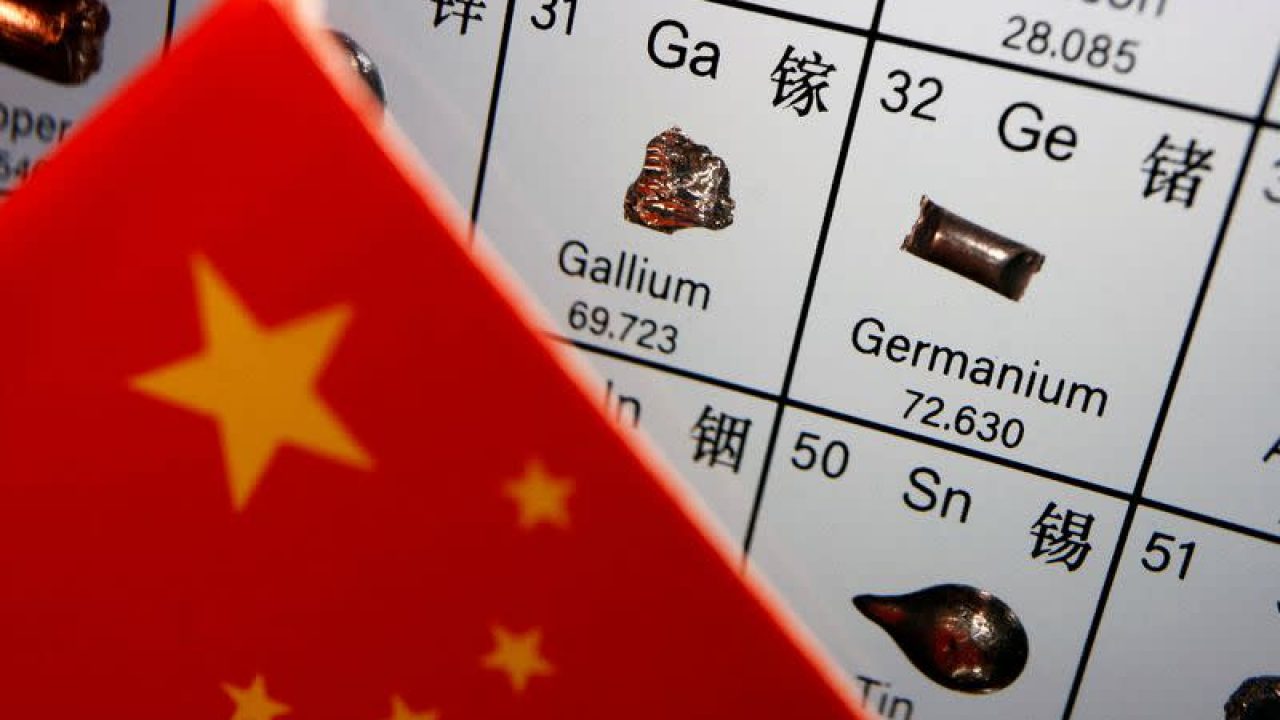China Halts Key Mineral Exports Critical to Semiconductor Production; What Would Be The Global Implications And Consequences?
China sent shockwaves through the global tech industry by abruptly suspending the export of two rare minerals vital for semiconductor manufacturing. Gallium and germanium, which play pivotal roles in the production of computer chips and solar panels, witnessed a complete export halt just a month after Beijing imposed stringent restrictions for national security reasons. These minerals are essential components of the modern world, powering everything from smartphones to self-driving cars, and their disruption has far-reaching implications.

China’s Dominance in Gallium and Germanium Production
China has long been the world’s primary supplier of gallium, responsible for approximately 80% of the global production, and germanium, accounting for around 60%.
The dominance, coupled with its newfound export restrictions, has raised concerns about the global supply chain’s resilience and the impact on both China’s economy and the world at large.
The Double-Edged Sword of Export Restrictions
While these export restrictions are seen as China’s response to US export controls, they come at a time when China is already grappling with internal economic challenges, including weak domestic demand and a housing crisis; hence, the move may not only potentially harm China’s economy but also accelerate the ongoing shift of global supply chains away from the country.

Impact on Prices and Market Dynamics
The immediate consequences are already evident as prices for gallium have plummeted in China, reflecting an oversupply caused by the export controls. Conversely, germanium prices have risen slightly due to constrained supply. These fluctuations serve as early indicators of the global market’s sensitivity to China’s actions.
Recent Chinese customs data reveals that there were no international sales of these elements in the past month; in contrast, China exported 5.15 metric tons of forged gallium products and 8.1 metric tons of forged germanium products in July.
Regarding the absence of exports, He Yadong, a spokesperson from China’s commerce ministry, explained during a press briefing that the department had received export applications for these materials; some of these applications had been approved, though further details were not provided.
These export restrictions reflect China’s willingness to respond to US export controls, even amid concerns about its economic growth, within the context of an ongoing technology-related dispute.
China, as the world’s second-largest economy, is grappling with issues such as weak domestic demand and a housing crisis and recently, its exports experienced their sharpest decline in over three years, adding further strain to its recovering economy.
Experts suggest that restricting exports may have a dual impact, potentially harming the Chinese economy and accelerating the relocation of supply chains away from China.
Although China leads in the production of these two elements, there are alternative producers and substitutes available, as noted by analysts from Eurasia Group.

The Impact
The repercussions of this collapse in exports are already evident domestically.
Gallium prices have fallen in China due to export controls, leading to an accumulation of inventories; the spot price of gallium was at 1,900 yuan ($260) per metric ton, a drop of nearly 20% from early July, according to data from the Shanghai Metal Market.
Meanwhile, the spot price of germanium has slightly increased due to limited supply, reaching 10,050 yuan ($1,376) per metric ton.
This move has escalated a technology-focused dispute with the United States, centered on access to advanced chip-making technology crucial for a range of applications, from smartphones and self-driving cars to defense manufacturing.
Last October, the Biden administration introduced export controls preventing Chinese firms from acquiring advanced chips and chip-making equipment without a license.

However, to achieve success, the participation of other countries was necessary; Japan and the Netherlands joined this effort earlier in the year, further restricting chip exports to China.
In response, Beijing initiated a cybersecurity investigation into US chipmaker Micron in April and subsequently banned its sales to Chinese companies involved in key infrastructure projects.
The recent introduction of the Mate 60 Pro smartphone by Huawei, powered by an advanced chip despite US sanctions aimed at limiting the company’s access to such technology, has created political pressure for the United States to intensify sanctions against both Huawei and Semiconductor Manufacturing International Corp. (SMIC), the Chinese chipmaker believed to have produced the semiconductor.
Jefferies analysts noted this development in a research note, anticipating tighter chip bans against China by the Biden administration in the fourth quarter.
The Last Bit; China’s decision to halt gallium and germanium exports stresses the growing complexity of the global tech domain, characterized by tensions between major players.
As the world becomes increasingly reliant on advanced semiconductor technology, disruptions in the supply chain have far-reaching consequences; while China remains a dominant player, there are alternative producers and substitutes for these critical minerals.
The true impact of this move on the tech industry, China’s economy, and global supply chains will unfold in the coming months.




